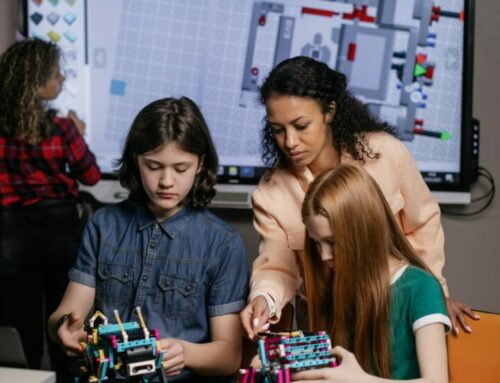Improving academic success through service-learning
Patrick Blessinger, Enakshi Sengupta and Taisir Subhi Yamin
St John’s University, USA, The HETL Association, USA and the International Centre for Innovaton in Education
At the George Washington University geography students enrolled in an urban sustainability course worked with the Anacostia Watershed Society to help restore and sustain the Anacostia River ecosystem. At the University of Wisconsin students worked with Habitat for Humanity to construct housing for low-income families.
In addition to tertiary education, service-learning is also used at the primary and secondary school levels, for example, by drawing on National Geographic resources to help students in an earth science course in New York City to think more like scientists by engaging them in real-world watershed sustainability initiatives.
These are just a few examples of the many different types of service-learning projects that students are engaged in at different academic institutions.
Service-learning defined
Service-learning is a teaching strategy, a learning activity and an educational philosophy that fosters active and engaged learning by integrating experiential learning and student research with classroom learning through community service.
In short, service-learning is a curricula-based approach to teaching and learning that allows students to directly put academic theory into real-world practice. The specifics of a service-learning project will depend on the institutional mission, the academic discipline and programme, the grade level and course type and the specific learning objectives.
Service-learning projects can be integrated into any course at any academic level. Service-learning projects help students achieve the learning objectives of the course. They can be interdisciplinary and they can span across more than one course. A defining characteristic of a service-learning project is that it is a community-based component of a credit-bearing academic course.
Service-learning has a long history and a substantial research base. It is grounded in the idea that learning is more effective if it is not just theoretical but also experiential and inquiry-based (that is, learning is enhanced by putting theory into practice and direct inquiry). It therefore gives students an opportunity to develop a broader and deeper understanding of course content and higher order thinking skills by implementing the content as they learn it.
The benefits of service-learning
Since service-learning projects are community-based and carried out in partnership with organisations in the community, they involve multiple stakeholders in the learning process and thus, if designed and implemented properly, they can lead to a more academically rigorous and meaningful learning experience.
Service-learning also has the potential to improve personal and social development, such as interpersonal communication and teamwork skills, citizenship and civic engagement skills, self-efficacy, ethical development and social responsibility, all of which are important to the ongoing development of democratic societies.
Given these and other potential benefits of service-learning, it can therefore be considered a high impact teaching and learning practice.
The research knowledge base on service-learning shows that it can have a positive impact on student engagement, retention and graduation rates. Service-learning is an approach that complements and enhances traditional classroom (face-to-face, hybrid or online) courses through civic engagement and community development.
Integrating service-learning into a course
Since service-learning projects are carried out in partnership with community organisations, they should be designed collaboratively with the partners.
Given the potential benefits of service-learning, many colleges and universities now have service-learning centres and programmes that provide resources to faculty to help them design service-learning courses effectively.
Service-learning centres are typically responsible for establishing and maintaining partner relationships and for providing the resources needed to design effective service-learning courses. Implementing service-learning at an institutional level involves the following steps: planning, designing, organising, implementing, institutionalising, monitoring, assessing and evaluating.
An effective service-learning course is about more than just requiring students to work in the community and write a report on it; rather, an effective service-learning initiative works in collaboration with the partner and clearly defines the roles and responsibilities of all parties (that is, the academic institution, the instructor, the student and the community partners), the benefits that each party will gain and the outcomes to be achieved by each party.
It is this mutually beneficial relationship that helps make the service-learning project worthwhile for all parties.
Best research-based practices
Regardless of the type or level of academic institution, educators continually look for ways to improve academic achievement as well as retention and graduation rates. The following best practices and principles can help to guide educators to improve student success through service-learning:
- Organise service-learning programmes and activities around key educational goals and the mission of the institution, such as student leadership, career and citizen development, civic and community engagement and institutional capacity building.
- Complement and enhance traditional classroom learning with service-learning by integrating and linking service-learning activities to specific learning objectives of the course and programme.
- Use service-learning as a mechanism to promote deep learning and higher order thinking with relevant activities and assignments that provide opportunities for reflective learning (for example, journal writing, academic essays and classroom discussions).
- Structure service-learning so that all parties benefit equitably and reciprocally.
- Provide appropriate professional development for faculty and training for students (for example, course design for service-learning, racial, cultural and gender sensitivity and ethical and legal considerations).
- Institutionalise mechanisms for continual monitoring and evaluation of service-learning effectiveness at all levels.
Service-learning is an experiential learning activity based on a constructivist teaching philosophy and a community service educational model. Service-learning is both hands-on and learning-by-doing.
It takes course content and theory and puts it into a more complex real-world setting. In doing so, it helps to create a more meaningful learning experience for students and helps academic institutions and community organisations to become better stewards in their service to humanity.
Patrick Blessinger is an adjunct associate professor of education at St John’s University in New York City, United States, and chief research scientist for the International Higher Education Teaching and Learning Association or HETL. Enakshi Sengupta is director of the Center for Advanced Research in Education. Taisir Subhi Yamin is general director of the International Centre for Innovation in Education (ICIE). This article is based on the chapter titled “Improving Student Retention, Throughput and Graduation Rates through Academic Engagement in Service-learning” which will appear in the forthcoming UNESCO publication titled Student Affairs and Services in Higher Education: Global foundations, issues and best practices. In addition, this topic will be one of the keynote topics at the upcoming ICIE conference in Texas in July 2019.
Suggested Citation:
Blessinger, P., Sengupta, E., and Yamin, T. S. (2019). Improving academic success through service-learning, University World News,
https://www.universityworldnews.com/post.php?story=20190526153905418
Or
Blessinger, P., Sengupta, E., and Yamin, T. S. (2019). Improving academic success through service-learning, Higher Education Tomorrow, Volume 6, Article 3,
https://www.patrickblessinger.com/improving-academic-success-through-service-learning/
Copyright © [2019] Patrick Blessinger, Enakshi Sengupta, and Taisir Subhi Yamin
Disclaimer
Opinions expressed in this article are those of the author, and as such do not necessarily represent the position(s) of other professionals or any institution.




